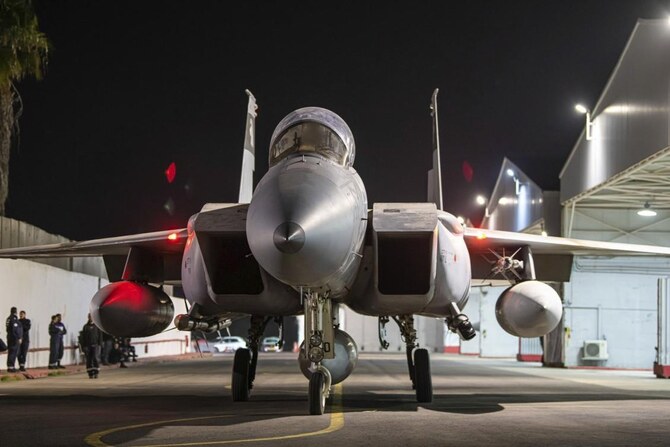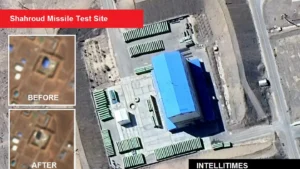October 28, 2024
In an unprecedented move, Israel launched a large-scale airstrike operation inside Iran on October 26, marking a dramatic escalation in the ongoing conflict between the two nations. Dubbed “Days of Repentance,” the operation involved Israeli jets striking 20 strategic military targets across Iran, including missile facilities, drone production sites, and air defense systems. The Israeli air force deployed dozens of aircraft, including fighter jets, intelligence units, refueling, and rescue units, with all aircraft returning safely to Israel after about four hours.
Former Deputy Director of the Mossad, Ram Ben-Barak, now a member of Israel’s Parliament, emphasized Israel’s strategic reach and operational precision. “We showed them we could reach any point in Iran. We neutralized air defenses and flew over them, hitting exactly what we wanted without detection,” Ben-Barak told Fox News Digital. His statement underscored Israel’s message to Iran: that it could strike critical infrastructure at will.
Targeted Strikes and Operational Waves
The operation was executed in three waves, beginning with an assault on Iranian air defenses. This cleared the way for over 100 aircraft to strike critical facilities including missile bases, drone manufacturing centers, and weapons storage sites. According to Israeli intelligence sources, satellite imagery confirms extensive damage to Iran’s military installations, particularly those associated with missile production.
A former senior Israeli security official, who spoke anonymously, elaborated on the strategic objectives, noting that the strikes focused on “a drone manufacturing facility, a missile factory, SA-300 air defense systems, and planetary mixers for solid fuel production.” While Iran has limited air defenses, including one advanced S-400 system from Russia, Israel targeted several of Iran’s SA-300 batteries, weakening its defensive capabilities.
Israeli intelligence analyst Ronen Solomon, who reviewed satellite images, confirmed that the operation had disrupted Iran’s missile production pipeline. Additional strikes were reported near the Parchin military complex, where Israel suspects nuclear-related testing occurs. “Israel didn’t strike Iran’s nuclear facilities directly but targeted the infrastructure supporting it,” Solomon explained, suggesting that Israel aimed to limit Iran’s military capabilities without causing international backlash.
Strategic Restraint and Coordination with the U.S.
Israel’s choice to avoid targeting Iranian oil and nuclear facilities was deliberate. Maj. Gen. (Res.) Amos Gilad, head of the Institute for Policy and Strategy at Reichman University, commented, “There was an added element of wisdom in this strike; we didn’t humiliate the Iranians.” By refraining from hitting civilian or economic sites, Israel minimized the potential for economic disruptions or escalations that could impact the region or global markets.
Coordination with the United States played a significant role in shaping the mission’s scope. According to Israeli officials, Israel informed the U.S. in advance, with Washington establishing air corridors over Iraqi airspace to assist the operation. “The American F-35 jets involved represent fifth-generation capabilities, adding an essential layer of defense against Iran,” Gilad said, describing the U.S.-Israel alliance as “steelclad.” This collaboration highlights the ongoing diplomatic and military cooperation between the allies in countering Iran’s regional influence and nuclear ambitions.
Iran’s Response and the Political Landscape
Iranian officials downplayed the operation’s impact, claiming only “limited damage” to military sites, although satellite images suggest otherwise. Despite Iran’s subdued response, political analysts speculate that Tehran may hesitate to retaliate immediately, given the potential ramifications in the lead-up to the U.S. presidential election.
The operation has fueled concerns among some Israeli and American officials about Iran’s long-term nuclear ambitions. Ben-Barak expressed confidence in Israel’s capabilities but warned of the broader security challenge. “Iran wants to eliminate Israel; we can’t let them have nuclear weapons. That is also U.S. policy,” he noted, urging continued cooperation with the U.S. to mitigate the threat.
Prime Minister Benjamin Netanyahu conducted a security assessment following the operation, joined by senior military and intelligence officials. “Our message is very, very clear… ‘any threat, anywhere, at any time, we will know how to reach it, we will know how to strike,’” said IDF Chief of General Staff LTG Herzi Halevi, reinforcing Israel’s readiness to take further action if necessary.
The success of Israel’s largest operation in Iran serves as a reminder of its military reach and strategic prowess. While diplomatic efforts may follow, the strikes send a clear message to Iran and the international community about Israel’s commitment to preventing Iran from advancing its nuclear and military capabilities.


